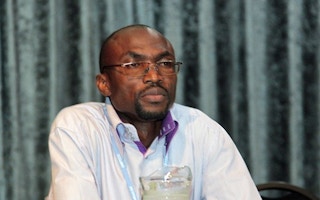Almost 50 of the world’s poorest nations said pledges made by rich countries to provide funds to help them adapt to a warmer planet risk being overlooked as UN negotiations over a global climate pact to start in 2020 got underway in Bangkok on Thursday.
The group of mostly African nations said that ill-fated talks launched in 2007 to find a successor to the Kyoto Protocol must not end without richer nations pledging financial aid to help them cope with rising sea levels cause by climate change.
Traditional industrialized nations such as the EU, the US and Japan want to close down the talks, which failed in 2009 to produce a legally-binding global pact to cut emissions of heat-trapping gases starting next year.
They want to focus on a new deal to take effect at the end of the decade.
“We cannot live with these issues being deferred until a new agreement is negotiated in 2015 and that would not even come into effect in 2020,” said Pa Ousman Jarju, chair of the Least Developed Countries negotiating group.
Rich nations have pledged to find $100 billion per year starting in 2020 to help nations combat the effects of climate change, but poorer nations are concerned that existing pledges of $10 billion a year will expire in December without a new interim agreement in place.
“All sides need a clearer understanding on how to get to $100 billion a year by 2020 with no gaps,” said Christiana Figueres, executive secretary of the UN’s climate department and the public face of the talks.
The call comes as traditional rich nations struggle to rein in their national debt and budget deficits, while support for proposals to tap the private sector for cash through regulating or taxing emissions from shipping and aviation have struggled to receive backing.
The Bangkok negotiations, which end next week, will also try to advance talks on whether countries that have refused to be legally bound to cut emissions under the Kyoto Protocol should be allowed access to the carbon markets launched under the 1997 treaty.
The issue is salient for the governments of Australia, New Zealand and Japan who have either given big emitting companies targets to cut emissions or plan to do so and are keen to allow them to use cheap carbon credits from the Clean Development Mechanism to cut costs.
Poorer countries want to use access to carbon credits as leverage to get those three nations to re-sign Kyoto.
Earlier this month Australia’s main opposition party which is tipped to win the country’s next general election said it would not object to the country taking on another legal target to cut emissions under the Kyoto Protocol, putting pressure on the government to sign up.
A spokesperson for Australia’s climate change minister said the country had not yet made a decision, preferring instead to wait to see how talks advance on the new global treaty, the bare bones of which were agreed at last year’s climate talks in Durban.
“The Australian government will take a decision on the Kyoto Protocol second commitment period at an appropriate time. We are carefully examining what the post-Durban international settings mean for our legislated carbon pricing scheme.”
The talks will also focus on how countries can deepen voluntary pledges to cut emissions by 2020 made at the Copenhagen climate summit in 2009.










